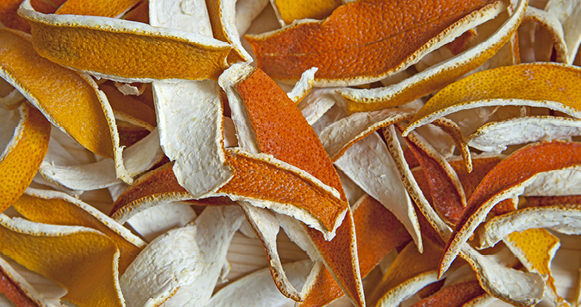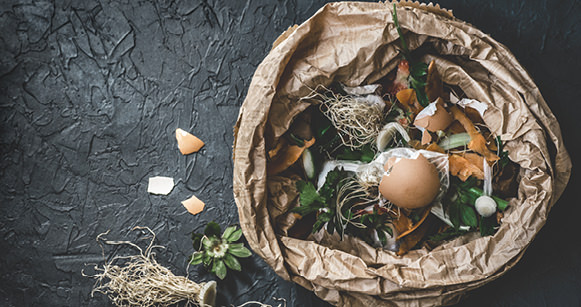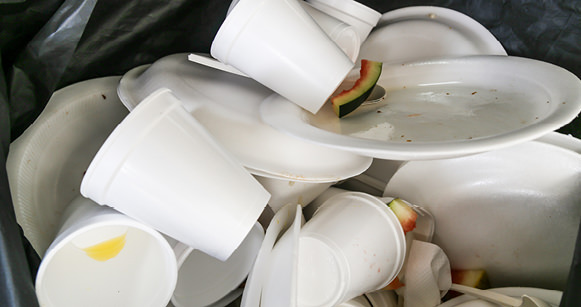LEARNING ACTIVITY
STORY
Amir and his friends were feeling inspired after taking part in a student Climate Change Action forum where they were joined by kids from their school, and other students from the region. Now it was time to take action closer to home. The friends had been talking about their school’s upcoming biennial fete. They thought there had to be a better way to celebrate the event and raise money for their school community without all the waste and the dreaded clean-up. The friends decided to approach the organising committee with a plan of action, suggesting solutions to the waste and an offer to volunteer their time. They could combine resources and make a real difference.

There are so many ways for us to have fun and enjoy a celebration event while also caring for the land, water, native flora and fauna. With your friends, combine your ideas to make the next celebration event Junior Landcare-friendly. For example, you can stop using single use products and try out some reusable and environmentally friendly options. Our young learners can take an active role in researching waste solutions, monitoring bin stations, creating informative graphics, and sharing their knowledge with others.
For children to:
• imagine new possibilities when planning an environmentally friendly event
• understand how decisions we make impact the environment positively or negatively
• seek sustainable solutions to reducing waste and put ideas into action.
The season and locale of the event may influence the types of activities and goods available at the event. Each event will need to be assessed on an individual basis. This may be a long-term project and require multiple sessions.
Introduction
With Australia’s growing population, we need to find solutions to manage our waste produced from food production, gardening, leisure activities, technology and general goods. We need to divert waste from landfill that can be reused, recycled or composted so that valuable resources can be recovered. Landfill is the name we give to the rubbish or waste that is buried, sometimes known as a tip or rubbish dump.
The resources we use create waste so what do we do with this waste matter? We are responsible for the waste we produce and where it ends up.
The adult’s key role is to facilitate discussions during this activity or project, and assist the young people with access to documentation and other adults who may be able to assist with the planning of the event.
*For introduction and initial brainstorm activity.
Checklist
Instructions
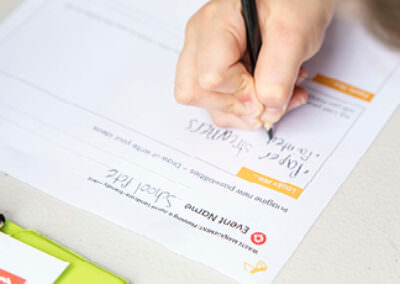
STEP 1
Provocation
So we have a special event [insert the name of your event] coming up in our community. I was wondering if it is possible for us to have celebrations and special events in our community while also showing care for the environment. Can we have both? Discuss.
Imagine new possibilities
Encourage the children to imagine new possibilities. What might an event that shows care and respect for the environment: Look like? Sound like? Feel like?
Complete the activity sheet to guide their planning.
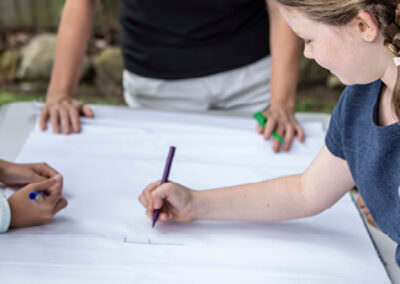
STEP 2
Connecting ideas
Planning is the most important step in organising a Junior Landcare-friendly event.
Discuss what values or beliefs will guide the children in planning for their event; for example care, respect, responsibility.
Considerations:
- what event are you holding?
- is it a swimming carnival, school dance, mini-fete, market stall, sports carnival, end of year class party or a cultural celebration?
- who is responsible for the overall planning of this event?
- will you have an organising committee? Some people you might want to involve include teachers, students, parents and other children
- how can you positively influence this group? How can you offer support and solutions?
- what waste do you anticipate at this event? Some items to consider are food scraps, glass, paper, firm plastic, aluminum, soft plastics and landfill.
- what are the expectations for a Junior Landcare-friendly event?
- how might this be different to previous events held in your community?
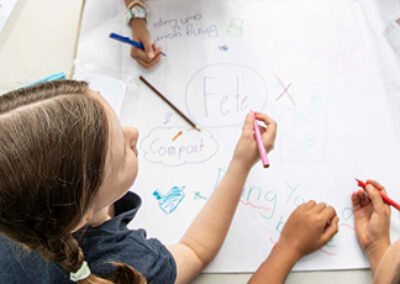
STEP 3
Seek solutions by brainstorming in groups, and record your ideas in your activity sheet, the poster sized sheet or digital device. Where possible, goods used at your event should be reusable, compostable or recyclable.
Organise – bin stations for your waste streams. Decide the best position for the bin stations.
You may need to organise extra waste collection services for a large event.
Refuse – can some items previously used be removed from your event? e.g. balloons, bottled water, straws, laminated signs.
Reuse – can non-sustainable items be substituted for reusable alternatives? e.g. bunting for balloons, water refill stations instead of bottled water, reusable cups, ceramic plates for plastic single-use plates.
Reduce – what actions can you take or how can you influence to minimise waste at this event? e.g. careful ordering, minimise non-reusable and non-recyclable packaging and catering products.
Rot – will there be food waste? Can this be composted onsite or offsite? e.g. someone from your community, the local council or a ShareWaste member may be able to take your food waste.
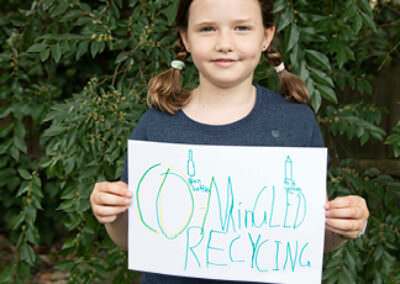
STEP 4
Putting ideas into action on the day
Managing waste onsite will be the biggest job for your group on the day. Have a clearly labelled four-bin recycling station if possible.
Here are a few useful tips to organise your bin stations:
- label the bins comingled recycling (paper cardboard, aluminum, steel, glass) composting, soft plastics, landfill (this may depend where you live in Australia and what your council collects)
- ensure the bin stations are set up in the same order at each location to avoid confusion
- roster friendly helpers at each bin station to prevent contamination of waste streams. This will make it easy for people to dispose of their waste responsibly. Give them a high 5 if they ‘bin it right!’
Use this event as an opportunity to teach others about what you have done and what you have learnt. e.g. fun signage, social media posts and announcements.
Extension Activity
Investigate how local Aboriginal or Torres Strait Islander communities maintain a special connection to, and responsibility for Country/Place.
What would your weekly garbage selfie look like? Take a photo of yourself surrounded by your rubbish for 1 week. What can you learn from this?
What sustainable actions can you adopt at home to minimise rubbish going to landfill?
Curriculum and Framework Links
SCIENCE
Year 2: ACSHE035, ACSSU031
Year 3: ACSHE051
Year 4: ACSSU074, ACSHE062
Year 5: ACSHE083
Year 6: ACSSU095, ACSHE100
Year 7: ACSHE120
Year 8: ACSHE135
Year 9: ACSHE228
GEOGRAPHY
Year 9: ACHGK069
CRITICAL AND CREATIVE THINKING
Generating ideas, possibilities and actions
ETHICAL UNDERSTANDING
Exploring values, rights and responsibilities
PERSONAL AND SOCIAL CAPABILITY
Social awareness
CROSS CURRICULUM PRIORITY
Aboriginal and Torres Straight Islanders Histories and Cultures: (OI.2)
Sustainability
MY TIME OUR PLACE: FRAMEWORK FOR SCHOOL AGE CARE
Outcome 2 and Outcome 4
Reference List
Environment Education Victoria’s Waste-Wise School Event Kit is useful for schools or community groups that are planning open days, fetes, sports carnivals, Kids Teaching Kids, EnviroWeek, or any large event where food is served.
Be inspired by case studies from schools running waste free events through from the Australian Education Sustainability Alliance.
Read more about how much landfill Australia has from The Conversation.
ShareWaste are a community group who help connect people who wish to recycle their kitchen scraps with their neighbours who are already composting, worm-farming or keep chickens.
Just for Kids
Check out our fun activity Design a poster and Plan a Junior Landcare friendly party.
We value your feedback
When you have finished this learning activity, please tell us what you think with our survey.
Your feedback will help Landcare Australia improve the activities in the Junior Landcare Learning Centre.
Why not try one of our other Junior Landcare learning activities?
Love Letters to the Land
Biodiversity|First Nations Perspectives|Food Production|Waste Management
Creating a worm farm
Waste Management
Caring for our coasts: beach clean-up
Waste Management
Waterways: clean-up
Waste Management
